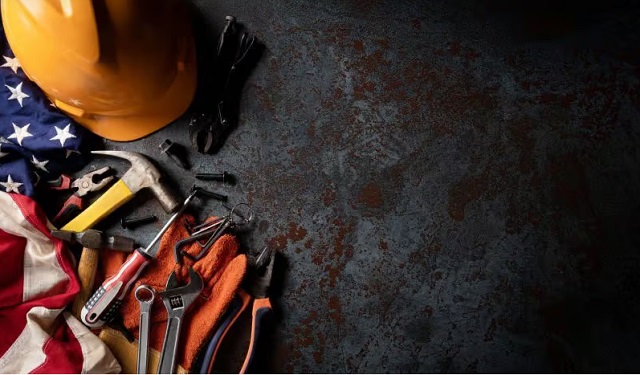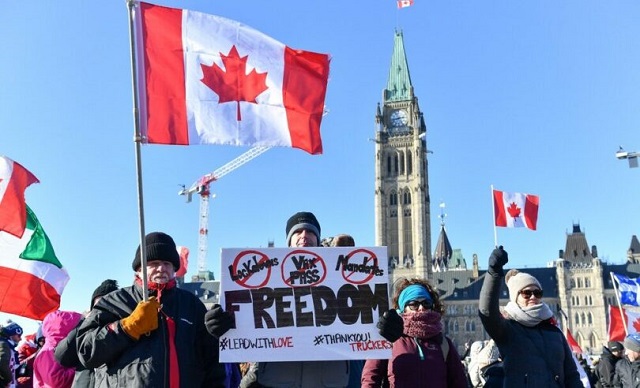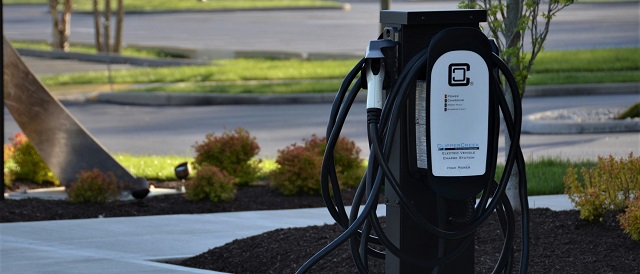COVID-19
The CDC Intervened in Voting Protocols

From the Brownstone Institute
BY
What’s fascinating is the timing. The page was updated to mention the necessity of mail-in voting on March 12, 2020. That’s the same day at Donald Trump’s famous hostage-style video that announced universal travel restrictions for Americans traveling to and from the UK and the EU, for the first time in US history.
In the spring of 2020, a deliberately cultivated disease fear swept across the population. Everyone was urged to do everything possible to avoid the invisible enemy.
It is an implausible request.
The terrorist-era slogan “If you see something, say something” was bad enough. This was “You can’t see something, so just do whatever.”
If you cannot see it, you cannot know where it is, in which case people filled the epistemic void with fantasies of their own invention.
It’s on this sandwich! Wait, it’s on this whole bag of groceries! It’s in this room while that room seems safer! It’s probably on the pen I just used so I’d better wash my hands! I should wear this helmet and these gloves, plus wash my dishes five times before using them! And so on.
It was all madness and it immediately affected the subject of voting, which quickly became a subject of discussion. If we are social distancing and staying home, how can we have normal elections with crowds at polling places? Surely we need a completely different system.
It was in this thicket of sudden frenzy that the CDC got involved. But not eventually involved; it was involved at the very outset.
The page is now scrubbed from the CDC website as of January this year but it has long posted voting protocols as a means of controlling infectious disease spread.
What’s fascinating is the timing. The page was updated to mention the necessity of mail-in voting on March 12, 2020. That’s the same day at Donald Trump’s famous hostage-style video that announced universal travel restrictions for Americans traveling to and from the UK and the EU, for the first time in US history.
He was so nervous that he actually garbled a sentence. He said that he would stop all goods transport. He meant to say that he would not! The correction came a day later but only after the stock market crashed.
That very day, someone went to the page on the CDC site and added that good hygiene involves pushing mail-in voting. We only know this thanks to Archive.org and checking the day-by-day timeline.

States now armed with this exhortation had every reason or excuse to liberalize their laws concerning mail-in voting. Plus with the CARES act, they were suddenly flush with billions to make it happen, all in the name of disease control. People permitted practices that otherwise would never have gone through.
In addition, the Cybersecurity and Information Security Agency, as part of the Department of Homeland Security, also took charge of securing the elections, obviously with the new liberalized ethos as part of the goal, which is to say, the opposite of security. This is the same agency that divided the workforce between essential and nonessential workers and also led the censorship charge.
There is nothing new about the controversies concerning mail-in ballots. Only half the world’s nations permit them at all. Nations such as France ban them entirely. Those that do allow this are very strict, as the US once was. You have to write in with a good excuse and then receive your mail-in ballot and there must be an exact database match. Part of this is proof of identity. This is all in the heightened interest of security.
By contrast, when I was traveling the country in October 2020, each place I landed I would receive a notification from Facebook to get my mail-in ballots. These were states where I didn’t live. I did not attempt this but I swear I could have voted six times. And otherwise you know how much controversy this elicited.
Indeed, Trump’s raison d’etre to this day is revenge for an election he says was stolen due to mail-in ballots. Well, if so, it only happened because of decisions made by his own executive agencies, CDC and CISA in particular. He has never been asked about this, by the way.
What is the precise connection between voting lines and infectious disease spread? There was every incentive to demonstrate one, something definitive to prove that in-person voting creates a super-spreader to be avoided. Despite this, there is not one single high-quality study showing some relationship. In fact, despite extensive research, I cannot find a single study that even purports to show that in-person voting spreads disease. Not one.
However, one of the few existing studies of this question from Wisconsin shows zero relationship.
In these days of fiction over science, the CDC just assumed there was some relationship and so invoked all its powers and influences over state health agencies and further to maximize mail-in voting and minimize in-person voting. It was entirely due to mail-in votes that Trump went so quickly from winning to losing literally overnight.
Here we have the nation’s great disease-mitigating agency, operating under the banner of science, issuing an order that fundamentally compromised the integrity of the very essence of American democracy without one shred of scientific evidence to justify the decision.
It does indeed stink to high heaven.
Does this imply that the goal of the whole wild episode was to unseat Trump from power? This would not explain why many of these same protocols were followed all over the world. Was Trump’s loss, real or manufactured, a benefit for those who ran the pandemic response? Most certainly. And the unearthing of this little change from the CDC – which found itself in the middle of the most contentious political struggle of modern times – certainly underscores the point.
COVID-19
NIH Quietly Altered Definition For Gain-Of-Function Research On Its Website, Former Fauci Aide Confirms

 From the Daily Caller News Foundation
From the Daily Caller News Foundation
By JASON COHEN
National Institutes of Health (NIH) Principal Deputy Director Lawrence Tabak confirmed on Thursday that his agency’s communications department altered NIH’s definition for gain-of-function research, with the change being “vetted” by “experts.”
The NIH until Oct. 20, 2021 defined this research as “modif[ying] a biological agent so that it confers new or enhanced activity to that agent,” while “some scientists use the term broadly to refer to any such modification,” according to the House Oversight Committee. Republican Rep. Nicole Malliotakis of New York questioned Tabak, a former aide to Dr. Anthony Fauci, about the agency changing its definition of the research on its website, asking him who authorized the alteration.
WATCH:
The current website does not define gain-of-function research, but asserts this research is usually uninvolved with enhanced potential pandemic pathogens.
“The change was made by our communications department because of the confusion that people have about the generic term of gain-of-function and the specific term gain-of-function,” Tabak testified.
Malliotakis responded by suggesting the communications department would not be qualified to make a change like this and must have had other input.
“The content was vetted,” Tabak testified. “By individuals who are subject-matter experts.”
Fauci firmly denied that the National Institute of Allergy and Infectious Diseases (NIAID) funded gain-of-function research on bat-based coronaviruses at the Wuhan Institute of Virology (WIV) before the COVID-19 pandemic during a Senate hearing in May 2021.
“The NIH has not ever and does not now fund gain of function research in the Wuhan Institute of Virology,” Fauci said.
Tabak testified on Thursday that the NIH did fund this research at the Wuhan Institute of Virology, but it “depends on [the] definition.”
The NIAID, which Fauci previously led, funded the nonprofit group EcoHealth Alliance to study bat-based coronaviruses in China that consisted of the transfer of $600,000 to the WIV, the Daily Caller News Foundation previously reported.
COVID-19
COVID Lab Leak: Over four later, EcoHealth Alliance funding is finally suspended

From Heartland Daily News
Thursday, May 16, 2024
Federal Funding Stripped From Nonprofit at Center of COVID Lab Leak Controversy
Today, the Biden administration suspended federal funding to the scientific nonprofit whose research is at the center of credible theories that the COVID-19 pandemic was started via a lab leak at the Wuhan Institute of Virology.
This morning, the U.S. Department of Health and Human Services (HHS) announced that it was immediately suspending three grants provided to the New York-based nonprofit EcoHealth Alliance (EHA) as it starts the process of debarring the organization from receiving any federal funds.
“The immediate suspension of [EcoHealth Alliance] is necessary to protect the public interest and due to a cause of so serious or compelling a nature that it affects EHA’s present responsibility,” wrote HHS Deputy Secretary for Acquisitions Henrietta Brisbon in a memorandum signed this morning.
For years now, EcoHealth has generated immense controversy for its use of federal grant money to support gain-of-function research on bat coronaviruses at the Wuhan lab.
In a memo justifying its funding suspension, HHS said that EcoHealth had failed to properly monitor the work it was supporting at Wuhan. It also failed to properly report on the results of experiments showing that the hybrid viruses it was creating there had an improved ability to infect human cells.
Congressional Republicans leading an investigation into EcoHealth’s research in Wuhan, and the role it may have played in starting the pandemic via a lab leak, cheered HHS’s decision.
“EcoHealth facilitated gain-of-function research in Wuhan, China without proper oversight, willingly violated multiple requirements of its multimillion-dollar National Institutes of Health [NIH] grant, and apparently made false statements to the NIH,” said Rep. Brad Wenstrup (R–Ohio), chair of the House’s Select Subcommittee on the Coronavirus Pandemic in a statement. “These actions are wholly abhorrent, indefensible, and must be addressed with swift action.”
Beginning in 2014, EcoHealth received a grant from NIH’s National Institute of Allergies and Infectious Diseases (NIAID) to study bat coronavirus in China. Its initial scope of work involved collecting and cataloging viruses in the wild and studying them in the lab to spot which ones might be primed to “spillover” into humans and cause a pandemic.
Soon enough, EcoHealth used some of the viruses they’d collected to create “chimeric” or hybrid viruses that might be better able to infect human lung cells in genetically engineered (humanized) mice.
This so-called “gain-of-function” research has long been controversial for its potential to create deadly pandemic pathogens. In 2014, the Obama administration paused federal funding of gain-of-function research that might turn SARS, MERS, or flu viruses into more transmissible respiratory diseases in mammals.
In 2016, NIH flagged EcoHealth’s work as likely violating the 2014 pause.
EcoHealth President Peter Daszak argued to NIH at the time that the viruses his outfit was creating had not been proven to infect human cells and were genetically different enough from past pandemic viruses that they didn’t fall under the Obama administration pause.

Wuhan Institute of Virology and Peter Daszak of EcoHealth Alliance
NIH accepted this argument under the condition that EcoHealth immediately stop its work and notify the agency if any of its hybrid viruses did show increased viral growth in humanized mice.
But when these hybrid viruses did show increased viral growth in mice, EcoHealth did not immediately stop work or notify NIH. It instead waited until it submitted an annual progress report in 2018 to disclose the results of its experiments.
A second progress report that EcoHealth submitted in 2021, two years after its due date, also showed its hybrid viruses were demonstrating increased viral growth and enhanced lethality in humanized mice.
In testimony to the House’s coronavirus subcommittee earlier this month, Daszak claimed that EcoHealth attempted to report the results of its gain-of-function experiments on time in 2019, but was frozen out of NIH’s reporting system.
The HHS memo released today says a forensic investigation found no evidence that EcoHealth was locked out of NIH’s reporting system. The department also said that EcoHealth had failed to produce requested lab notes and other materials from the Wuhan lab detailing the work being done there and the lab’s biosafety conditions.
These all amount to violations of EcoHealth’s grant agreement and NIH grant policy, thus warranting debarment from future federal funds, reads the HHS memo.
That EcoHealth would be stripped of its federal funding shouldn’t come as too great a shock to anyone who watched Daszak’s congressional testimony from earlier this month. Even Democrats on the committee openly accused Daszak of being misleading about EcoHealth’s work and manipulating facts.
Rep. Raul Ruiz (D–Calif.), the ranking Democrat on the House’s coronavirus subcommittee, welcomed EcoHealth’s suspension, saying in a press release that the nonprofit failed its “obligation to meet the utmost standards of transparency and accountability to the American public.”
An HHS Office of the Inspector General report from last year had already found that EcoHealth had failed to submit progress reports on time or effectively monitor its subgrantee, the Wuhan Institute of Virology.
When grilling Daszak, Democrats on the Coronavirus Subcommittee went to great lengths to not criticize NIH’s oversight of EcoHealth’s work. The HHS debarment memo likewise focuses only on EcoHealth’s failures to abide by NIH policy and its grant conditions.
Nevertheless, it seems pretty obvious that NIH was failing to abide by the 2014 pause on gain-of-function funding when it allowed EcoHealth to go ahead with creating hybrid coronaviruses under the condition that they stop if the viruses did prove more virulent.
NIH compounded that oversight failure by not stopping EcoHealth’s funding when the nonprofit did, in fact, create more virulent viruses, and not following up on a never-submitted progress report detailing more gain-of-function research until two years later.
The House Subcommittee’s investigation into NIH’s role in gain-of-function research at the Wuhan lab is ongoing. Tomorrow it will interview NIH Principal Deputy Director Lawerence Tabak. In June, it will interview former NIAID Director Anthony Fauci.
Originally published by Reason Foundation. Republished with permission.
-

 COVID-192 days ago
COVID-192 days agoJapan’s most senior cancer doctor: COVID shots are ‘essentially murder’
-

 Alberta2 days ago
Alberta2 days agoProvince announces next step to revamped health care system
-

 Automotive1 day ago
Automotive1 day agoGovernments in Canada accelerate EV ‘investments’ as automakers reverse course
-

 COVID-192 days ago
COVID-192 days agoTrudeau government only sought legal advice after Emergencies Act was invoked, records indicate
-

 Economy1 day ago
Economy1 day agoBiden signs suicidal ‘No Coal’ pact, while rest of world builds 1,000 new plants
-

 Automotive1 day ago
Automotive1 day agoRed States Sue California and the Biden Administration to Halt Electric Truck Mandates
-

 Alberta1 day ago
Alberta1 day agoPharmacist-led clinics improve access to health care: Lessons from Alberta
-

 COVID-192 days ago
COVID-192 days agoMore victories for freedom as ArriveCAN charges dropped and fines reduced







